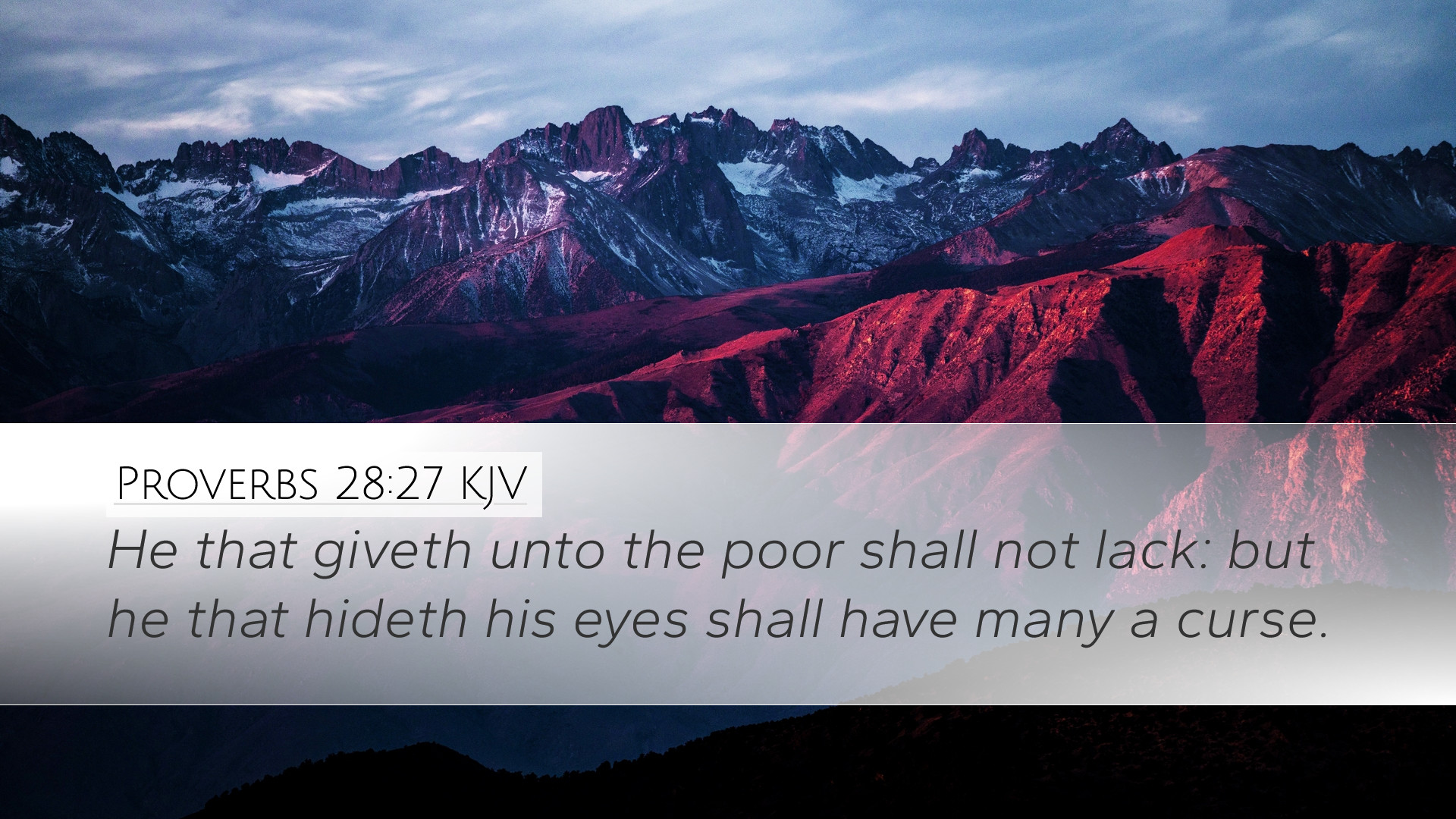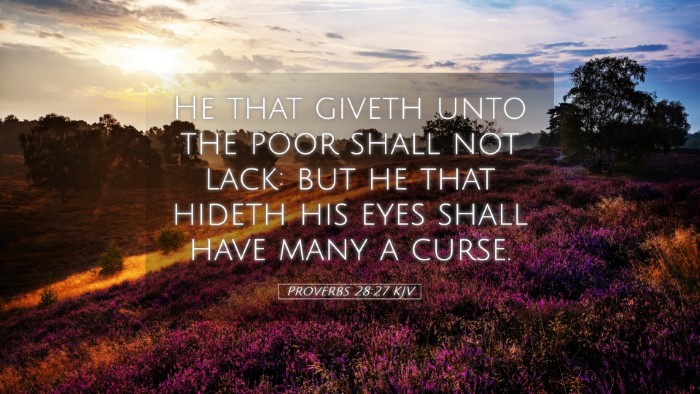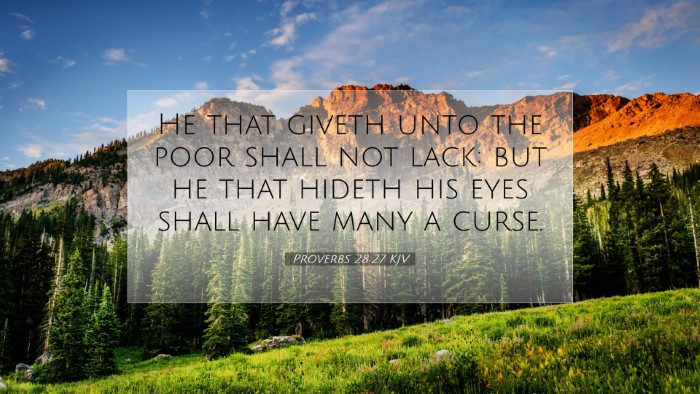Proverbs 28:27 Commentary
Bible Verse: Proverbs 28:27 - "He who gives to the poor will not lack, but he who hides his eyes will have many curses."
This verse encapsulates a profound truth about the relationship between generosity and divine provision. It forms part of Solomon's wisdom literature, emphasizing ethical living and social responsibility.
Overview
Proverbs 28:27 highlights two contrasting attitudes and their consequent outcomes. The first part of the verse commends the act of giving to the poor, suggesting that such generosity leads to abundance and divine favor. In contrast, the second part warns against indifference toward the needy, indicating that neglect will result in adverse consequences.
Insights from Commentators
Matthew Henry's Commentary
Matthew Henry emphasizes that this proverb serves as an encouragement for believers to act compassionately. He notes:
- Generosity as a Virtue: Henry argues that giving to the poor is not merely an act of kindness, but a spiritual duty that stems from a heart aligned with God's will.
- Divine Provision: He points out that the promise of lacking nothing applies to those who selflessly offer help to those in need. This suggests that God honors and rewards acts of kindness.
- Consequences of Indifference: Conversely, turning a blind eye to the poor is deemed a selfish act and can lead to a life filled with curses, both spiritual and social.
Albert Barnes' Notes on the Bible
Albert Barnes provides a practical application of this verse, focusing on the implications for daily life:
- Encouragement for Almsgiving: Barnes articulates that the act of giving should be a continual practice within the community of faith. He suggests that believers should seek opportunities to contribute to the welfare of the impoverished.
- Trust in God's Promise: He reiterates that the assurance of not lacking when one gives freely underscores God's faithfulness to provide for His people.
- Moral Accountability: Hiding one's eyes from the poor is a reflection of moral decay. Barnes warns that such behavior can lead to further spiritual blindness and estrangement from God's providential care.
Adam Clarke's Commentary
Adam Clarke expands on the themes of mercy and divine justice within this proverb:
- The Nature of Charity: Clarke articulates the notion that charity should be rooted in love and compassion. He believes that the act of giving is a reflection of one's own understanding of God's mercy.
- Implications of an Open Hand: He adds that those who are generous will find their needs met, not merely as a transaction, but as a divine guideline for living in harmony with God's laws.
- Warnings Against Apathy: Clarke cautions against apathy towards the poor, suggesting that neglect will lead not only to social ostracization but also a distancing from the blessings of God.
Theological Reflection
This verse is a significant reminder of the interconnectedness of faith and action. The call to give to the poor is a manifestation of faith in action, embodying the loving nature of God.
Key Themes:
- Faith and Works: The verse harmonizes the teachings found in the New Testament regarding faith without works being dead (James 2:26). True faith manifests itself through tangible acts of love and charity.
- God's Providence: It reflects a theological understanding that trusting in God's provision encourages believers to engage in selfless giving.
- Community Responsibility: It speaks to the church's collective responsibility toward its members and the broader community, echoing the call to serve and uplift those who are vulnerable.
Practical Application for Today's Believers
As we meditate on Proverbs 28:27, let us consider how this teaching applies to our contemporary context:
- Engagement in Community Service: Believers should actively seek ways to assist the needy, whether through monetary support, volunteering, or advocating for social justice.
- Creating a Culture of Generosity: Churches should foster environments that encourage generosity amongst members, perhaps through fundraising initiatives or support systems for those in financial distress.
- Personal Reflection: Individuals ought to assess their attitudes toward wealth and giving. Are we hoarding our resources, or are we open to sharing as God's stewards?
Conclusion
Proverbs 28:27 serves as a timeless reminder of the blessings associated with generosity and the dangers of neglect. Through the insights of Henry, Barnes, and Clarke, we see that this verse not only provides moral instruction but also leads us to a greater understanding of God’s character as a provider and a nurturer through His people.
Let us, therefore, strive to practice a life of openness and generosity, knowing that in doing so, we reflect the heart of God and participate in the ongoing work of His Kingdom on earth.


